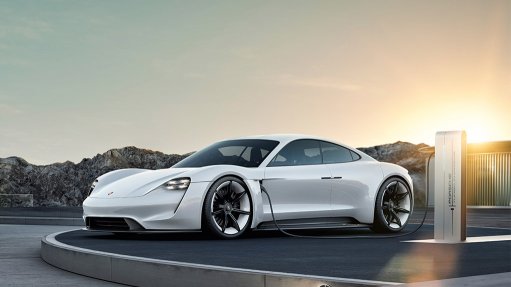
The Porsche Taycan
Series production of the first purely electric Porsche, the Taycan, is set to begin next year.
The name can be roughly translated as “lively young horse”, referencing the imagery at the heart of the Porsche crest, which has featured a leaping steed since 1952.
“Our new electric sports car is strong and dependable; it’s a vehicle that can consistently cover long distances and that epitomises freedom,” says Porsche chairperson Oliver Blume.
The Taycan will be powered by two permanently excited synchronous motors with a system output of more than 600 hp (440 kW), which sees the electric sports car accelerate to 100 km/h in under 3.5 seconds and to 200 km/h in under twelve seconds.
The vehicle’s maximum range is more than 500 km.
Porsche plans to invest more than €-6billion in electromobility by 2022, doubling the expenditure that the German sports car maker had originally planned.
Of the additional €3-billion, some €500-million will be used for the development of Taycan variants and derivatives, around €1-billion for electrification and hybridisation of the existing product range, several hundred million euro for the expansion of production sites, plus around €700-milllion for new technologies, charging infrastructure and smart mobility.
At the Porsche headquarters in Zuffenhausen, Germany, a new paint shop, dedicated assembly area for the Taycan and a conveyor bridge for transporting the painted bodies and drive units to the final assembly area are currently being constructed.
The existing engine plant is being expanded to manufacture electric drives and the body shop will also be developed.
Investment is also planned for the Weissach Development Centre.
Production of the Taycan will create around 1 200 new jobs in Zuffenhausen alone.
Porsche South Africa says while production is due to start next year, production roll-out and timing for global markets are not yet clear.